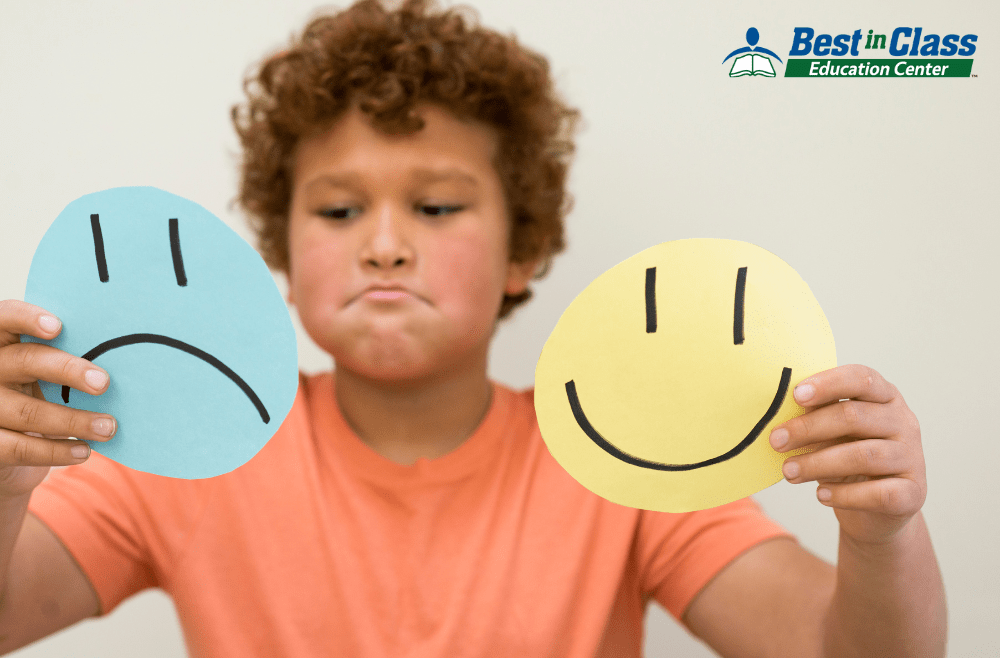Social-Emotional Learning (SEL): A Key to Academic and Personal Success

Like most parents, you would do anything to help your child succeed at school and in all their pursuits. However, many parents may focus extensively on academic advancement and less on one equally important ingredient to their future success—social-emotional learning. SEL is vital to your child’s healthy relationships with themselves and others, learning how to overcome challenges, and developing strong mental health.
If your child has been struggling with peer relationships, having emotional outbursts, or even suffering academically, social-emotional learning may provide some answers to help you and your child get back on track.
What Is Social-Emotional Learning (SEL)?
Social-emotional learning refers to how children learn to manage their emotions and behaviors. Although children seem to learn these skills automatically as they get older, the truth is that the adults in their lives have more influence than you might think. When you tune into your child’s social-emotional skills, you can equip them to understand themselves better, regulate their emotions, communicate their wants and needs, handle challenges, and interact with others appropriately.
Although social-emotional learning can be defined in slightly different ways, the CASEL framework breaks it down into five categories:
- Self-awareness – Does your child know what they are feeling? Can they identify when they are mad, sad, or frustrated? If they can understand and express their feelings, they can take the next step: regulating their behavior.
- Social awareness – Can your child identify how a friend is feeling? Do they respect their friends’ personal space, opinions, and needs? Seeing others’ perspectives is a skill that will help them in every aspect of life as they get older.
- Decision-making – Does your child know how to make good decisions? Even if your child is doing something as simple as playing with friends on the playground, they have to make several important decisions: what game to play, how to talk nicely to their friends, how to resolve disagreements, etc. When they have strong social-emotional skills, they can make better decisions in these (and higher-stakes) situations.
- Self-management – As your child ages, they will learn that their long-term goals often conflict with their current desires. Self-management is the skill that will help them set reasonable goals and keep themselves motivated. Self-management also involves managing stress and keeping their impulses in check.
- Relationship skills – Do your child’s friendships seem rocky, one-sided, or problematic? If so, they would benefit from developing relationship skills. Strong interpersonal skills will help them create healthy relationships that are socially fulfilling, supportive of others, and accepting of support when they need it.
Social-emotional learning is not just one skill—it’s many. All the defined areas work together to create one well-rounded individual who can maintain strong relationships, live a fulfilling life, and reach their goals.
How Does Social-Emotional Learning Affect Academic Success?
You may wonder how social-emotional learning impacts academic success. The answer is that social-emotional learning is necessary for learning to take place. If a child experiences emotional dysregulation, they will not be able to pay attention in class, let alone learn challenging material. Similarly, if a child is lonely at school or has trouble with friend relationships, they may want to avoid school altogether. Addressing social and emotional learning can set your child up for success in and out of the classroom.
How Can I Support My Child’s Social-Emotional Learning?
Many schools and teachers include SEL in their classrooms through formal activities or as embedded instructional components. These educators understand the critical connections between social-emotional self-regulation and lifelong success. At home, parents can also support their child’s emotional well-being. After all, SEL can help them become better students, better employees (or employers!), and maybe, someday, better parents.
So, how can you support your child? Start by observing their interactions with others, taking note of their behavior when they are upset or frustrated, and asking their teachers and other adults about how they conduct themselves in the classroom. Help them learn to regulate their emotions by:
- Modeling the way you would like them to act and speak.
- Reinforcing positive choices and offering “do-overs” for less-than-ideal social-emotional responses.
- Giving them opportunities to burn off extra energy, such as engaging in outside play and organized sports.
- Talking about your emotions and thought processes for daily situations to help them identify their own emotions and thought patterns.
After working with your child to build these skills, if you notice that they seem to be struggling excessively with their social-emotional skills, you may want to bring any concerns to your child’s pediatrician.
At Best in Class, we can help your child gain confidence, independence, and perseverance while they hone skills like math and reading. Our experienced tutors are knowledgeable about mathematics and English but also care about the overall well-being of each student they teach. We aim to support you in growing your child into a confident, competent, emotionally-adept young adult. Contact us today to learn how we can guide you and your child on their academic journey.

